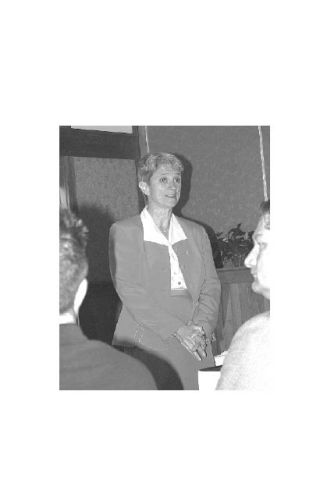The Snoqualmie Valley Community Network (SVCN) had hoped to establish a health center at the new Twin Falls Middle School.
However, the group recently ruled out the location when hospital staff reported that the intended space was not large enough to maintain confidentiality and accomodate the number of students expected to use the services.
The SVCN has since named Two Rivers School as a possible venue. Debby Peterman, who is leading a feasibility study of a potential health center, reported to the school board at its June 26 meeting that Two Rivers Principal Tom Athanases was interested in housing the center at his school. Peterman said her task force is also considering siting the center off school grounds or in a mobile unit.
Breakfast talk
The SVCN hosted a breakfast on Wednesday, June 18 at the Snoqualmie Ridge TPC to share the progression of the $20,000 federal planning grant to explore the idea of creating a teen health center at a school in the district.
Peterman touted the potential benefits of such a center.
“If our kids are healthy, they’re more likely to graduate, contribute to society and become successful consumers,” said Peterman, who described the program as a collaborative process including parents, teachers and community businesses.
A health center could provide medical services ranging from regular check-ups to chronic disease management for conditions such as asthma and diabetes, counseling to help students cope with depression, and health education services to prevent risky behavior and promote safe choices, Peterman said. It would also provide support to teachers who are not trained to deal with the complexities of the mental health issues of depressed or substance-dependent adolescents.
Kathleen Halloran of Bendigo Wellness Center, one of 16 business leaders at the breakfast, raised the idea of a mobile unit that may provide more students with access to the health center’s services. A mobile unit could have a designated time and day at each school in the district, she said.
After the breakfast, Ed Belleba, the president of the non-profit organization Friends of Youth, told the Record he supports a health center, citing studies that show teens living in affluent areas experience an elevated risk of exposure to dangerous substances and activities. Boredom, pressure to perform for sports, the stress of college enrollment, access to cars, lack of parental supervision and disposable income contribute to wealthier children’s tendency to get into trouble.
While the majority of the attendees indicated that they would sign letters of support should the community embrace the project, not all attendees jumped on board. Wendy Thomas, owner of Carmichael’s True Value, would like to know more.
“I have no kids, so I have no basis,” she said. “I need time to digest the information.”
Nancy Whitaker, the recently retired executive director of Encompass, said she appreciates the SVCN’s outreach.
“A lot of time these projects leave the business community out,” she said.
The SVCN will make a presentation to the Snoqualmie Valley Chamber of Commerce this month.
Tentative parents
Parents have expressed concern during community meetings, Peterman said.
“Parents want to be involved,” she said, adding that confidentiality is an issue. Many parents were unaware that Washington law allows children 13 years and older to seek mental health counseling services without the consent of a parent or guardian.
The second of a series of community task force meetings, held on Thursday, June 12, drew about two dozen community members, including a group of parents who expressed concern over being left in the dark regarding the health care their children may receive from the health center. Their primary concern centered around lack of knowledge regarding the treatment their child may receive as a result of Washington’s minor confidentiality rights laws.
The work group, including staff counselors, nurses, mental health professionals, an intervention specialist and a school principal, had initially hoped to open the health center in a middle school; however, in their next meeting, scheduled for July 10, the group will focus on the issues of opening a clinic in a high school setting.
Student support
A survey of 13 Mount Si High School students conducted during the first week of June found that teens expressed interest in basic health care, access to medication, counselors, reproductive health care services, STD testing and information about preventative medicine.
“It is amazing how much it helps to just have someone listen,” one teen said during the interview.
Another student said the program may offer help to students who are unable to help themselves: “A lot of times if you have a friend that has an issue you don’t know how to deal with it, but you don’t want to, like, tell their parents.”


